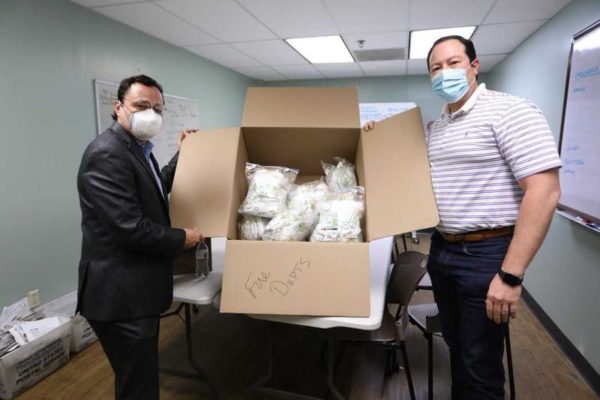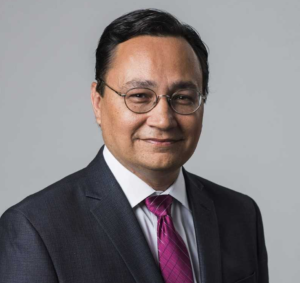
- Details
- By Chuck Hoskin Jr
For many first responders, securing protective masks has been difficult due to low supplies and high demand during the COVID-19 pandemic. Cherokee Nation and Cherokee Nation Businesses mobilized to address those needs. Today we are proud to be supplying personal protection equipment to emergency personnel, medical professionals and first responders across northeast Oklahoma. It’s part of Cherokee Nation’s effort to fight back against COVID-19 in local communities.
 Cherokee Nation Principal Chief Chuck Hoskin, Jr.
Cherokee Nation Principal Chief Chuck Hoskin, Jr.
The effort began with a strategic idea from our Emergency Management Team. We wanted to do as much as possible to provide safety measures to personnel as they entered the homes of potentially infected citizens. We reached out to our traditional partners to identify others who may need PPE.
Once we were assured that Cherokee Nation’s own health system was properly stocked with personal protective equipment, tribal leaders worked for several weeks to secure a large supply of KN95 masks for area first responders. The tribe has donated more than 2,500 KN95 masks to every fire and police department that expressed a need. Cherokee Nation also donated 100 masks to emergency management teams in each of the Cherokee Nation’s 14 counties.
The tribe is sending an additional 5,000 KN95 masks to the Navajo Nation, which has been hit particularly hard by COVID-19. Our Navajo brothers and sisters have more coronavirus cases per capita than all but two states, with a 367% rise in two weeks. We could not in good conscience watch others in Indian Country struggle through this crisis without protective equipment when we had an adequate supply.
These contributions will in no way undermine our capacity to provide the critical protective equipment to Cherokee Nation’s own medical professionals and front-line workers. As Redbird Smith famously said, “A kindly man cannot help his neighbor in need unless he have a surplus, and he cannot have a surplus unless he works.” It is a true testament to the foresight and hard work of our professional staff that we have the ability to make these donations.
Our health and emergency care staff embraced the challenge to develop express COVID-19 testing and help protect our community care workers and first responders while maintaining all other health care needs. When we support committed medical professionals and courageous first responders who serve our communities, it also benefits the Cherokee Nation. We start by protecting those who will protect us. We are a blessed nation, and we multiply our blessings by sharing with others in need.
Chuck Hoskin, Jr. is the principal chief of the Cherokee Nation.
More Stories Like This
Native News Weekly (August 25, 2024): D.C. BriefsUS Presidents in Their Own Words Concerning American Indians
Two Murdered on Colville Indian Reservation
NDAA passes House; Lumbee Fairness Act Advances
NFL, Vikings to Host Native All-American Game, Youth Flag Clinic
Help us defend tribal sovereignty.
At Native News Online, our mission is rooted in telling the stories that strengthen sovereignty and uplift Indigenous voices — not just at year’s end, but every single day.
Because of your generosity last year, we were able to keep our reporters on the ground in tribal communities, at national gatherings and in the halls of Congress — covering the issues that matter most to Indian Country: sovereignty, culture, education, health and economic opportunity.
That support sustained us through a tough year in 2025. Now, as we look to the year ahead, we need your help right now to ensure warrior journalism remains strong — reporting that defends tribal sovereignty, amplifies Native truth, and holds power accountable.
 The stakes couldn't be higher. Your support keeps Native voices heard, Native stories told and Native sovereignty defended.
The stakes couldn't be higher. Your support keeps Native voices heard, Native stories told and Native sovereignty defended.
Stand with Warrior Journalism today.
Levi Rickert (Potawatomi), Editor & Publisher
